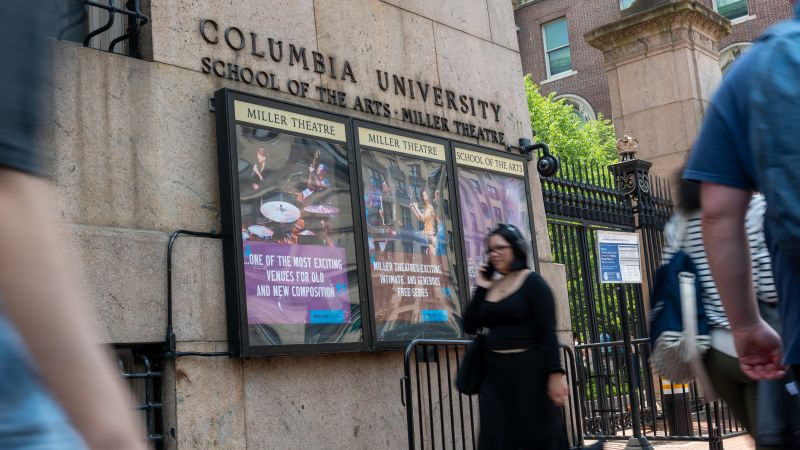House Republican Leadership Chairwoman Elise Stefanik recently criticized Columbia University’s acting president, Claire Shipman, regarding comments made that Stefanik argues could potentially violate the Civil Rights Act. This criticism comes amid ongoing investigations related to the university’s handling of antisemitism on campus. One of the points of contention in this discourse is Shipman’s suggestion, made during her tenure as chair of the board of trustees, that an Arab individual be appointed to the university’s board.
In a letter addressed to Shipman, dated Tuesday, Stefanik, along with GOP Representative Tim Walberg, who chairs the House Education and Workforce Committee, highlighted a message from Shipman dated January 17, 2024. In this message, Shipman emphasized the need for the university to appoint someone from the Middle East or with Arab heritage to the board. The wording she used, “Quickly I think. Somehow,” raises alarms regarding potential discrimination based on national origin, calling into question the university’s compliance with Title VI of the Civil Rights Act.
Title VI explicitly addresses discrimination based on race, color, or national origin in federally funded programs and activities. This legal framework is crucial when examining the implications of appointing board members based solely on ethnic backgrounds. The letter additionally references Shipman’s criticisms of Shoshana Shendelman, a Jewish member of the board, identified by Stefanik and Walberg as an outspoken advocate against the bullying and intimidation of Jewish students on campus. In comments attributed to Shipman on January 25, 2024, she expressed reservations about Shendelman’s role, stating, “I just don’t think she should be on the board.”
The tone of Shipman’s remarks has raised eyebrows and led to questions about her motivations. Stefanik and Walberg pointed out that the timing of this criticism coincides with a period of heightened anxiety and fear among Jewish students, exacerbated by rising antisemitic sentiments on campus. The committee inquired why Shipman would suggest removing a strong advocate for Jewish students during such a challenging time.
In defense of Shipman, a spokesperson from Columbia University noted that these communications were issued to the Committee in fall 2024 and are being interpreted out of context. The spokesperson mentioned that the university was undergoing difficult challenges, which affected communications at that time. The ensuing statement assured that Columbia remains committed to confronting antisemitism and collaborating with federal entities on this significant issue, including dialogues with the Joint Task Force to Combat Antisemitism initiated under the Trump administration.
Highlighting the challenges further, Shipman had previously acknowledged the rising fear around antisemitism in another message from October 30, 2023—weeks after an attack by Hamas—indicating a sentiment permeating the campus that may border on irrationality but is nonetheless deeply felt. In this context, Stefanik and Walberg expressed perplexity at Shipman’s characterization of legitimate fears from students facing violence and harassment as “not necessarily a rational feeling.”
The letter emerges within a broader narrative where the Trump administration has criticized various U.S. universities for allegedly allowing antisemitism to flourish. Notably, accusations against Columbia for demonstrating “deliberate indifference” to the harassment of Jewish students date back to October 2023, reiterating the scrutiny the university is under regarding its campus climate.
In response to mounting pressure from political figures, including President Trump, Columbia has modified its approach to campus demonstrations, instituted new disciplinary measures, and initiated reviews of its Middle Eastern studies curriculum. Compounding this situation, the U.S. Department of Education’s Office for Civil Rights recently escalated its stance against the university, indicating that Columbia does not meet accreditation standards due to its failure to adequately protect Jewish students.
As this situation continues to develop, the scrutiny surrounding Columbia University reflects broader societal tensions regarding identity, inclusion, and the balance of representation within academic institutions. The complexities surrounding the university’s responses, the implications of Shipman’s comments, and ongoing investigations into antisemitism signal a critical juncture in the relationship between educational institutions and the communities they serve.











